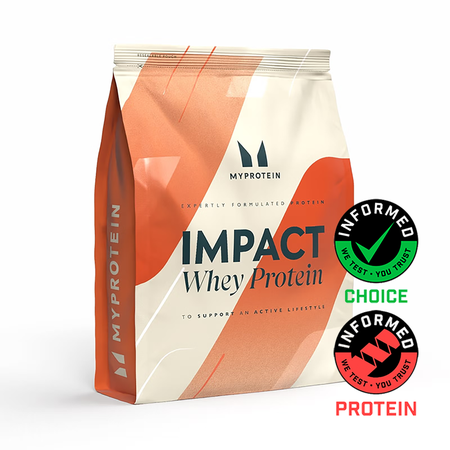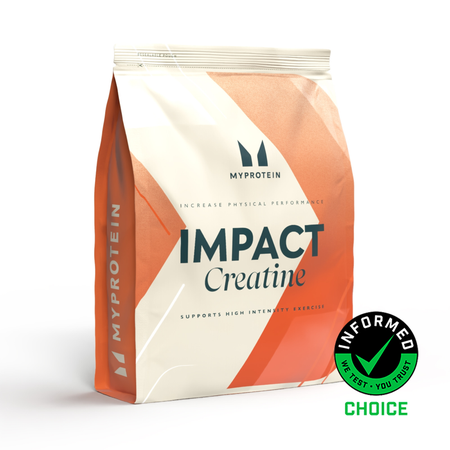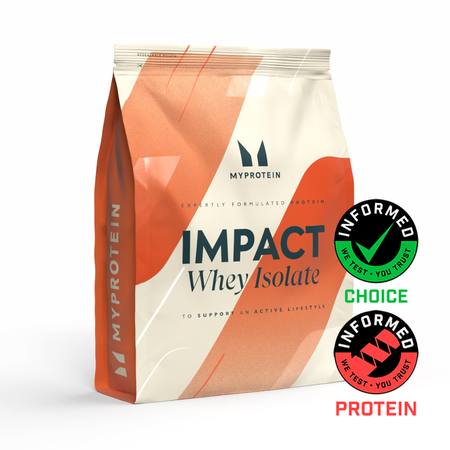Myprotein would love to be a part of your fitness journey !!
We have curated special beginners packs for our new customers with our top selling flavours like, chocolate smooth, strawberry cream, chocolate brownie and coffee. Let's get your fitness accelerated !
What are you waiting for ? Grab yours now...
Enjoy 15% off on your first order with us, Use Code: NEWCUSTOMER
Blogs
Check out our blogs for more advice about protein and how to consume it.
FAQs
It’s important to look after yourself, but sometimes we don’t have all the answers.
So, we’ve answered a few questions that you may have around protein and it's benefits.
Protein shakes are made from protein powder, which is a dry, powdered supplement that can be derived from both animal orplant-based protein sources. It can beflavoured orunflavoured, and is most often mixed with water, milk, or another liquid as part of a protein shake or smoothie.
Protein powder can also be used in a variety of other ways – like baking or mixing into oatmeal or cereal.
Some common forms of protein powder are whey, casein (both isolated from cow’s milk), soy, and pea protein.
Protein shakes are a way to supplement, which means to add to, your daily dietary intake of protein.
Our bodies need protein for many daily tasks — boosting our immune system, sending messages throughout the body, growth and repair of cells and tissues.
However, the benefits of protein powder mostly focus on functional abilities, like adding lean mass, improving muscle recovery, and increasing satiety.
1. Protein shakes can aid muscle growth
2. Protein can help you to lose weight
3. Taking protein before bed can speed up recovery
4. Protein Shakes Can Boost Your Metabolism
5. Protein Shakes Can Preserve Muscle Mass
6. Protein Shakes are Convenient
Whey
Whey is a protein source that comes from the liquid that is leftover when using cow’s milk to make cheese. It is dried and processed to the powdered supplement form.
Based on the level of processing and refining, there are three different types of whey protein powder: concentrate, isolate, and hydrolysed whey. All forms of whey are considered a complete source of protein, containing all of the amino acid building blocks that our bodies need.
Concentrate
Whey concentrate is the most common type of whey protein supplement. It has less protein per gram than the isolate or hydrolysed forms due to less processing.
However, this also makes it a lower price point and still contains between 30-90% protein. It can still contain some carbs in the form of lactose (milk sugar), which may be a concern for those with lactose intolerance.
Whey concentrate can take longer to digest than isolate or hydrolysed forms, giving your muscles a chance to absorb the protein over time.
Isolate
Whey isolate is the next level of processing that refines the protein powder further. It contains upwards of 90% protein, and very little carbs or fat.
Isolate contains little to no lactose making it more easily digestible. You may pay a higher price for the further level of refinement of this type of protein powder.
Hydrolysed
Hydrolysed whey protein takes the longer chains of peptides (protein) and breaks them into small chains of amino acids; the goal is to make this type of protein be absorbed more quickly and easily.
The amino acids are still effective in muscle repair and growth but are often used to limit the potential for allergic reactions to milk (like in baby formulas).
Hydrolysed whey contains between more than 75% protein content with little protein and fat.
Whey protein contains protein, fat, carbs, vitamins and minerals. Due to its strong amino acid content and the ability to be absorbed by the body, it’s ideal for building muscle. It has been shown to promote muscle protein synthesis, support fat burning, and suppress appetite. It has also been shown to increase the production of glutathione (antioxidant).
Protein powders are available in the form of whey concentrate or whey isolate. Both of these contain protein, however, isolate, which is made of whey concentrate, undergoes further processing to yield a product with a higher protein concentration.
What is whey concentrate?
Whey protein is created when liquid portions of milk are pushed through a refined filter. The material that is then left behind and left to dry forms whey protein concentrate. This form of whey varies on the amount of fat and carbohydrates in the form of lactose.
The variation of protein can range between 30-80% and include numerous protein subfractions. According to evidence, these peptides need to remain in their natural, undenatured form to exert these properties.
What is whey isolate?
While whey concentrate has the protein content of approximately 80%, the content within whey isolate is greater at 90%. This is due to cross-flow microfiltration, which causes the protein to separate from fat and lactose. a popular choice for those that are on low-fat diets, as it’s lower in fat compared to concentrate.
Whey isolate is also much lower in lactose, which makes it ideal for those with an intolerance. As whey concentrate is further processed and purified into whey protein isolate, the structure becomes degraded and loses some of its biological activity. However, the amino acid structure and sequence doesn’t change when the protein becomes denatured and will not affect the muscle building qualities. All large proteins are broken down during digestion into amino acids therefore whether this happens in the gut or in a manufacturing process it is irrelevant.
The choice of whey that you go for should depend on your goals, budget and allergies. As whey concentrate has a significantly higher amount of lactose, if you’re lactose intolerant, you’d opt for the isolate.
1. Protein shakes will make me bulk up
Fact: Protein shakes alone will not make you bulky.
Those who want to add mass might do that with protein shakes – but only as a part of a higher calorie diet and intense exercise regimen.
Protein shakes can be useful for weight loss, weight maintenance, or weight gain – it depends on the other factors in your lifestyle.
If you’re looking to use protein shakes to help you bulk up, try our Gainer Blend.
2. Protein shakes are tough on the body
Fact: Protein shakes do not harm the body.
People used to think that protein was tough on the digestive system and kidneys, but today’s protein shakes are so well researched and designed to support health, not harm the body. Used as directed protein shakes are completely safe.
3. Protein shakes are only for after heavy lifting workouts
Fact: Protein shakes can be beneficial after any workout.
Protein shakes are designed to help muscles rebuild and repair – which is obviously needed after heavy lifting, but also beneficial after lower intensity workouts like bar or yoga, or cardio training.
Most forms of exercise require the muscles to work hard and create microtears that will benefit from a boost of post-workout protein.
4. Protein shakes are not for rest days
Fact: Protein shakes can be beneficial even on rest days.
Because our muscles can take up to 24 hours to recover from a workout, using a protein shake on a rest day can still help boost recovery. Even if you’re not trying to recover, the benefits of protein for satiety and overall health make protein shakes useful even when you aren’t working out.







